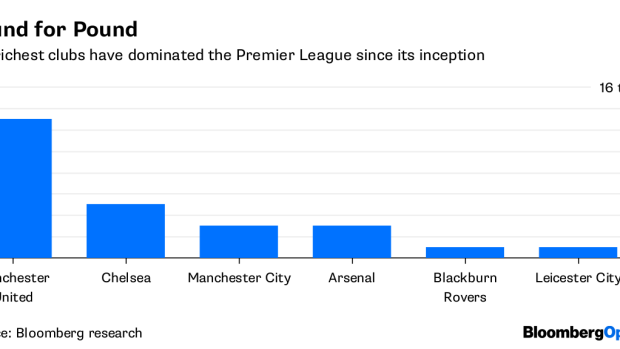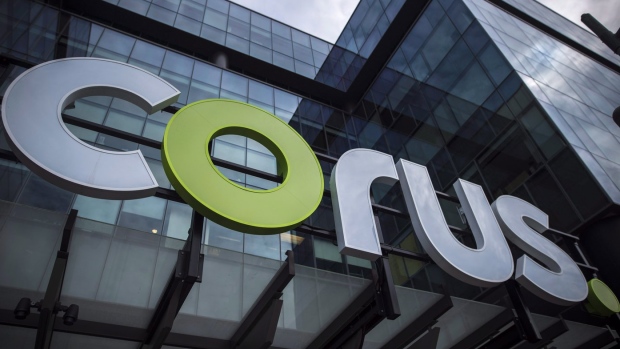May 25, 2018
FIFA Is About to Destroy World Soccer
, Bloomberg News

(Bloomberg Opinion) -- FIFA seems to be on the cusp of creating an oligopoly which could destroy club soccer around the world.
Two years after assuming the chairmanship of the sport’s global governing body, Gianni Infantino is seeking to create a new competition which will see the world’s top clubs compete for a $1.9 billion prize pot.
If risks exacerbating the wealth gap between the world’s biggest and smallest clubs to such an extent that the trend of recent years, where just a handful of clubs have any realistic chance of winning a title, is sure to get even more acute.
It’s unclear how entirely the league will be structured, but the Financial Times has reported that it will consist of 24 club teams competing in a tournament once every four years, which will be held in one region or country. It is likely that the top-performing teams from the continental tournaments (the respective Champions Leagues in Europe, the Americas, Asia and Africa) will then get a chance to compete for the global trophy.
The plan doesn’t have a straight shot to fruition. The Spanish are dead set against it, and controversy has prompted FIFA to delay the approval vote.
But were it to be realized, it would give the richest clubs a chance to become yet richer, giving them more financial clout to secure the world’s best players and qualify for the top prizes, and so on. England’s Premier League is instructive. English clubs competing in the Champions League, Europe’s top club competition, generated sales averaging 398 million pounds in the 2015-2016 season, according to consultancy Deloitte. The average Premier League club that didn’t participate in a European competition posted revenue of just 110 million pounds.
The ramification of that financial dominance is reflected in who has won England’s Premier League title. There are 20 clubs in the league at any one time, but just six teams have won it since its inception in 1992. With the exception of a single win each by Blackburn Rovers and Leicester City, the only winners have been Manchester United, Manchester City, Chelsea and Arsenal.
Under Infantino’s new plan, the 24 teams from around the world that would compete would all receive some extra revenue, while the teams that get stuck in domestic leagues would receive no money. The 24 would also benefit from greater global exposure, letting them secure additional sponsorship and retail income.
It could be yet worse for non-European leagues. Competitions outside the region, including the continental ones, are significantly less lucrative. The handful of teams who qualify for Infantino’s championship would therefore benefit significantly from the vastly expanded income, which should translate into substantial dominance at home.
The logic from the FIFA side is clear. The organization secures a major payday once every four years from the World Cup, and so the timing of this new tournament could even out those peaks and troughs.
But at what cost? Not only could it create a further imbalance in the club game, the current plan will also see private companies take a 49 percent stake in the new venture, according to the FT. FIFA is, ostensibly at least, a nonprofit which aims to reinvest all surplus revenue back into the game. That’s all well and good if you agree with the premise of the tournament, but given its effect, the added factor of handing over so much power to private investors whose primary motive is profit rather than the good of the game is troubling.
When considered holistically, global soccer is a huge business. But individually, even the biggest clubs are really little more than SMEs: Manchester United’s 2017 revenue was 581 million pounds. FIFA has to ask itself: Is its primary motive to make a handful of clubs richer, or supporting the sport itself? This proposal achieves the former at the expense of the latter.
To contact the author of this story: Alex Webb at awebb25@bloomberg.net
To contact the editor responsible for this story: Jennifer Ryan at jryan13@bloomberg.net
©2018 Bloomberg L.P.























